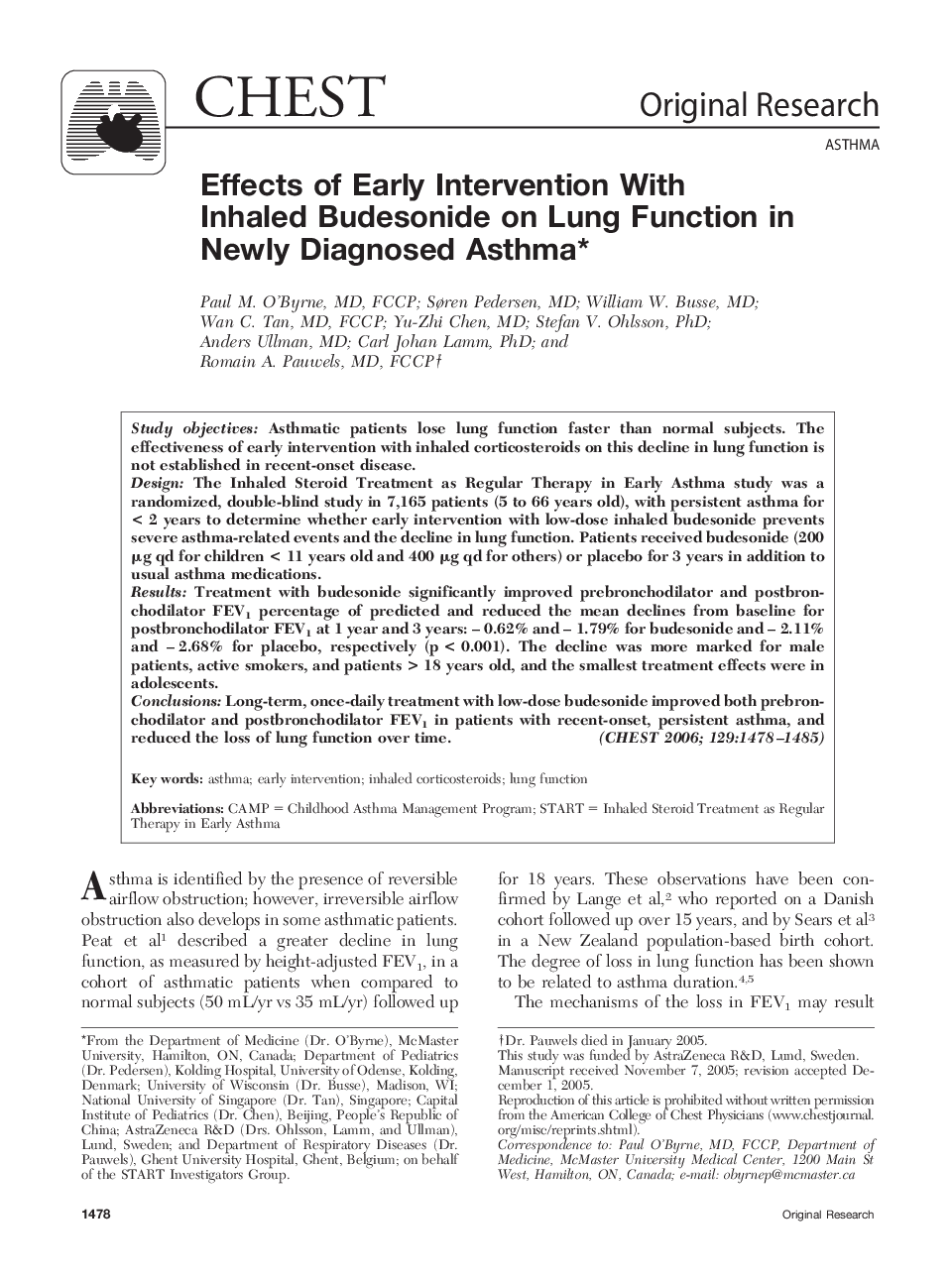| کد مقاله | کد نشریه | سال انتشار | مقاله انگلیسی | نسخه تمام متن |
|---|---|---|---|---|
| 2905937 | 1173439 | 2006 | 8 صفحه PDF | دانلود رایگان |

Study objectivesAsthmatic patients lose lung function faster than normal subjects. The effectiveness of early intervention with inhaled corticosteroids on this decline in lung function is not established in recent-onset disease.DesignThe Inhaled Steroid Treatment as Regular Therapy in Early Asthma study was a randomized, double-blind study in 7,165 patients (5 to 66 years old), with persistent asthma for < 2 years to determine whether early intervention with low-dose inhaled budesonide prevents severe asthma-related events and the decline in lung function. Patients received budesonide (200 μg qd for children < 11 years old and 400 μg qd for others) or placebo for 3 years in addition to usual asthma medications.ResultsTreatment with budesonide significantly improved prebronchodilator and postbronchodilator FEV1 percentage of predicted and reduced the mean declines from baseline for postbronchodilator FEV1 at 1 year and 3 years: – 0.62% and – 1.79% for budesonide and – 2.11% and – 2.68% for placebo, respectively (p < 0.001). The decline was more marked for male patients, active smokers, and patients > 18 years old, and the smallest treatment effects were in adolescents.ConclusionsLong-term, once-daily treatment with low-dose budesonide improved both prebronchodilator and postbronchodilator FEV1 in patients with recent-onset, persistent asthma, and reduced the loss of lung function over time.
Journal: Chest - Volume 129, Issue 6, June 2006, Pages 1478–1485